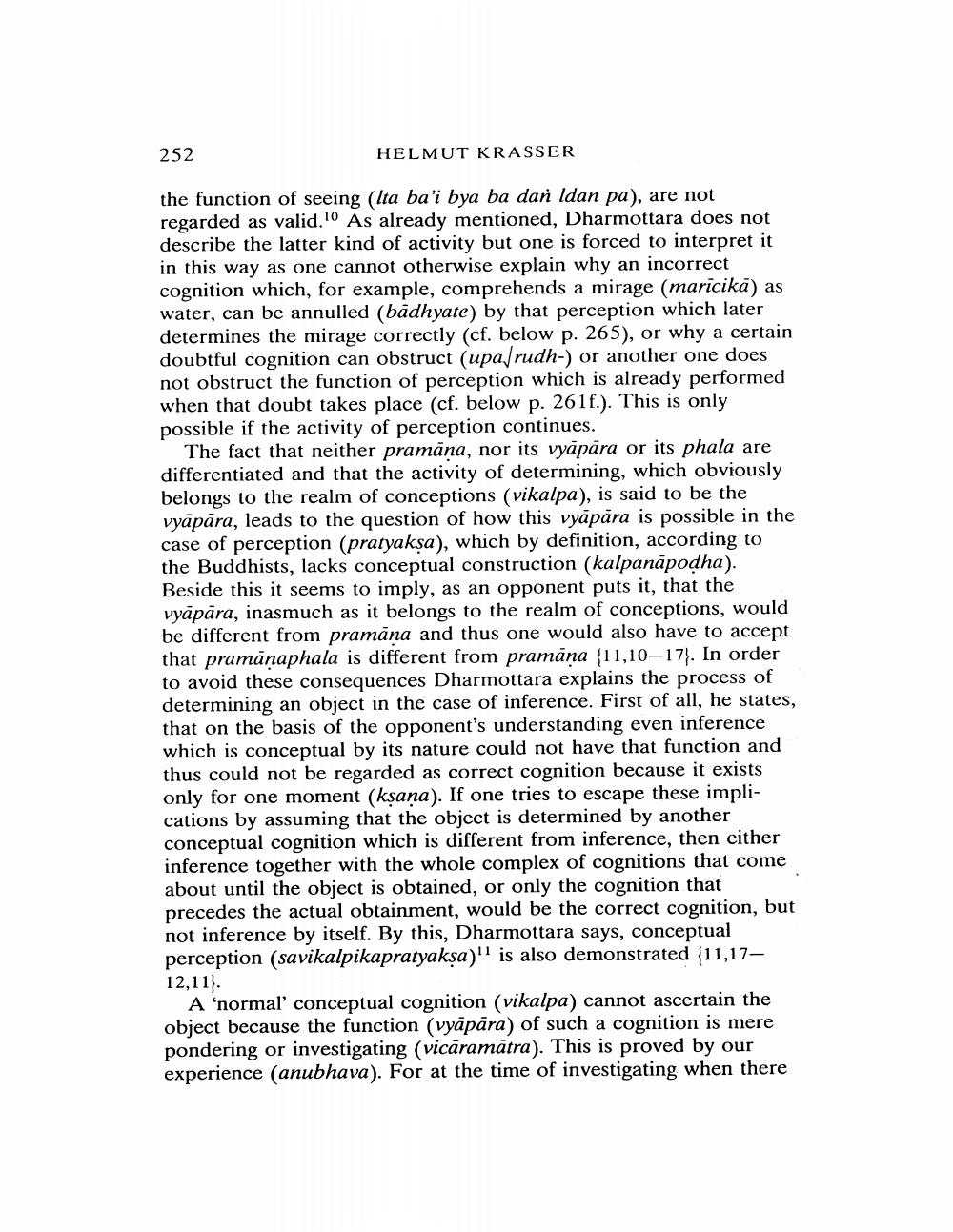Book Title: Dharmottaras Theory Of Knowledge In His Laghupramanyapariksa Author(s): Helmut Krasser Publisher: Helmut Krasser View full book textPage 6
________________ 252 HELMUT KRASSER the function of seeing (lta ba'i bya ba dan Idan pa), are not regarded as valid.To As already mentioned, Dharmottara does not describe the latter kind of activity but one is forced to interpret it in this way as one cannot otherwise explain why an incorrect cognition which, for example, comprehends a mirage (maricikā) as water, can be annulled (badhyate) by that perception which later determines the mirage correctly (cf. below p. 265), or why a certain doubtful cognition can obstruct (upa/rudh-) or another one does not obstruct the function of perception which is already performed when that doubt takes place (cf. below p. 261f.). This is only possible if the activity of perception continues. The fact that neither pramāna, nor its vyāpāra or its phala are differentiated and that the activity of determining, which obviously belongs to the realm of conceptions (vikalpa), is said to be the vyāpāra, leads to the question of how this vyāpāra is possible in the case of perception (pratyaksa), which by definition, according to the Buddhists, lacks conceptual construction (kalpanapodha). Beside this it seems to imply, as an opponent puts it, that the vyāpāra, inasmuch as it belongs to the realm of conceptions, would be different from pramana and thus one would also have to accept that pramānaphala is different from pramāna {11,10-17). In order to avoid these consequences Dharmottara explains the process of determining an object in the case of inference. First of all, he states, that on the basis of the opponent's understanding even inference which is conceptual by its nature could not have that function and thus could not be regarded as correct cognition because it exists only for one moment (ksana). If one tries to escape these implications by assuming that the object is determined by another conceptual cognition which is different from inference, then either inference together with the whole complex of cognitions that come about until the object is obtained, or only the cognition that precedes the actual obtainment, would be the correct cognition, but not inference by itself. By this, Dharmottara says, conceptual perception (savikalpikapratyakşa)" is also demonstrated (11,17– 12,11). A 'normal' conceptual cognition (vikalpa) cannot ascertain the object because the function (vyāpāra) of such a cognition is mere pondering or investigating (vicāramātra). This is proved by our experience (anubhava). For at the time of investigating when therePage Navigation
1 ... 4 5 6 7 8 9 10 11 12 13 14 15 16 17 18 19 20 21 22 23 24 25
